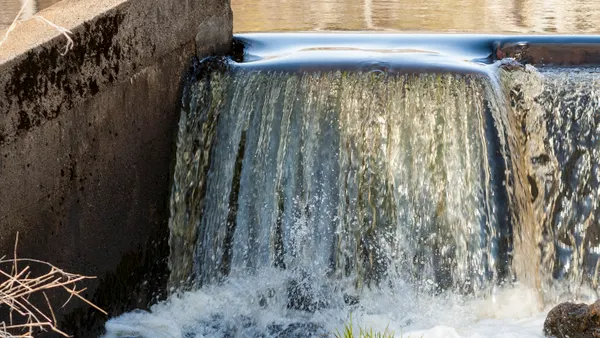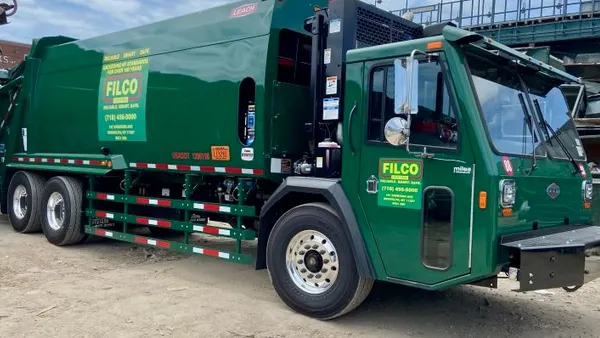Dive Brief:
- Lake Worth, Florida plans to revert from single-stream curbside collection to dual-stream beginning on October 1, according to the Palm Beach Post. The city had broken off from Palm Beach County's Solid Waste Authority (SWA) dual-stream system in 2008 to begin contracting with Waste Management for single-stream collection, but it is now returning.
- Waste Management had been paying the city $10 a ton for the collected materials, but it changed the terms of the contract due to market conditions. Keeping the single-stream system meant Lake Worth would have had to pay Waste Management $85 a ton for hauling.
- The city says residents weren't properly separating trash from recyclable items and the contamination rate with the single-bin program was about 39%. SWA says it will supply Lake Worth with a variety of educational materials for the switch back, and it will closely monitor the city's collection for the first three months to provide input on compliance and potential improvements.
Dive Insight:
Palm Beach County contains many small cities and unincorporated areas in addition to the county seat of West Palm Beach. SWA collects both waste and recycling from the unincorporated areas and operates various facilities, including MRFs, that process about 90,000 tons of recyclables each year.
Residents served by SWA's program discard fiber items in one bin, and plastics, metals, glass and cartons in the other. The public agency began offering dual-stream curbside recycling in 1987 and resisted the national trend to convert to single-stream over the past several decades.
The city of Lake Worth, however, pulled away from the county's program to explore its own single-stream curbside program. Lake Worth is the only municipality to have left and returned to the program, so SWA is using this as a test case.
In addition to the $220,000 start-up cost — $147,000 after a credit — Lake Worth will have to invest significant time and energy in re-educating citizens about proper sorting under the two-bin recycling program. It is also an opportune time to reinforce the importance of reducing contamination. Some residents have reported frustration at the extra effort a dual-bin program will require, and others don't like the idea of giving up the sealed totes they used for the new open bins.
Leaders who approve single-stream systems often hope to boost recycling rates by offering citizens greater convenience. However, convenience can lead to complacency, and single-stream programs are plagued by unclean and improper items entering the bins, which is of particular concern when contamination is a major factor influencing the market. SWA has been affected by the market challenges as well, noting it collects about 55,000 tons of fiber materials each year, most of which were sent to China. Now, China's decision to ban fiber has made the price of recovered paper drop from about $100 a ton in 2017 to about $20 a ton now, according to SWA.
SWA says dual-stream programs produce the highest quality materials available, and the authority consistently is able to "move the material even in a down market." It added that, "Until there is a change in the market that would make sense to convert to single stream, the Authority intends to continue its dual stream program."









